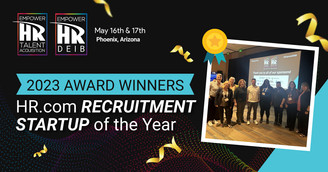Recruitment and talent acquisition is undergoing a seismic shift courtesy of Artificial Intelligence. Similarily, job seekers are also increasingly turning to AI to craft resumes, cover letters, and responses to written assessments and one-way interview tools. This trend poses unique challenges and opportunities for recruiters and employers alike.
The AI-Powered Job Seekers
AI technologies have evolved so job seekers can automatically generate resumes tailored to unique job descriptions. This capability undermines the effectiveness of matching technology to filter or shortlist candidates. Similarly, once personal and reflective of an individual’s experiences and thought processes, cover letters, and assessment responses can now be artificially produced with remarkable sophistication.
Moreover, the advent of AI doesn’t stop at written submissions. Candidates also utilize these technologies to prepare for and respond to screening calls and interviews. This includes recording conversations for later analysis or even employing AI-driven coaching tools to refine their interview skills.
The Double-Edged Sword
In this new AI-augmented reality, recording interviews and screening calls has become a double-edged sword. On one hand, it offers job seekers a chance to review their performance and gather insights for future improvements. Conversely, it introduces legal and privacy considerations that employers must navigate carefully. Ensuring that all recordings are made in compliance with local and international laws is paramount to prevent potential litigation.
This underscores the importance of recruiters and employers documenting their calls and interactions through compliant communication platforms like Honeit. Modern candidate screening and interview intelligence platforms safeguard against legal repercussions and ensure the hiring experience remains authentic, transparent, safe, and equitable.
The Irreplaceable Value of Human Interaction
Despite the transformative impact of AI, the importance of live, human-to-human interactions in the recruitment process has never been more critical. Real conversations offer a depth of understanding and personal connection that AI cannot replicate. They allow recruiters to gauge a candidate’s communication skills, cultural fit, and adaptability in ways automated systems cannot. As AI applications flood the recruitment pipeline, an increasing number of recruiters are turning to analog methods like phone screenings to manage this overload effectively. A recent WIRED article, titled “Recruiters Are Going Analog to Fight the AI Application Overload,” discusses how these traditional techniques are being revitalized to ensure safer, easier, and less risky recruitment processes.
Furthermore, live interactions serve as a vital check against the use of AI in answering questions or completing assessments. They ensure that the candidate’s responses are genuinely their own, reflecting their true abilities and potential.
In the age of AI, fostering genuine connections through direct conversations is not just a matter of preference but a strategic imperative. Through live phone screens and video calls, recruiters and talent acquisition partners can discern the nuances of a candidate’s personality, motivations, and reliability.
Moving Forward
As we navigate the complexities introduced by AI in recruitment, embracing a balanced approach becomes essential. While AI can enhance certain aspects of the recruitment process, relying solely on technology can lead to missed opportunities for genuine connection and assessment.
The future of effective talent acquisition lies in combining the best of both worlds: leveraging AI for efficiency and scale while prioritizing human interactions to capture the essence of each candidate. By doing so, employers can ensure that they are not just hiring a resume but a real person who will contribute meaningfully to their organization’s success.
The Takeaway
In conclusion, the rise of AI in recruitment challenges us to rethink our strategies and approaches. By embracing the irreplaceable value of human interaction and ensuring compliant communication practices, recruiters and employers can navigate this new landscape with confidence, safety, and integrity.


